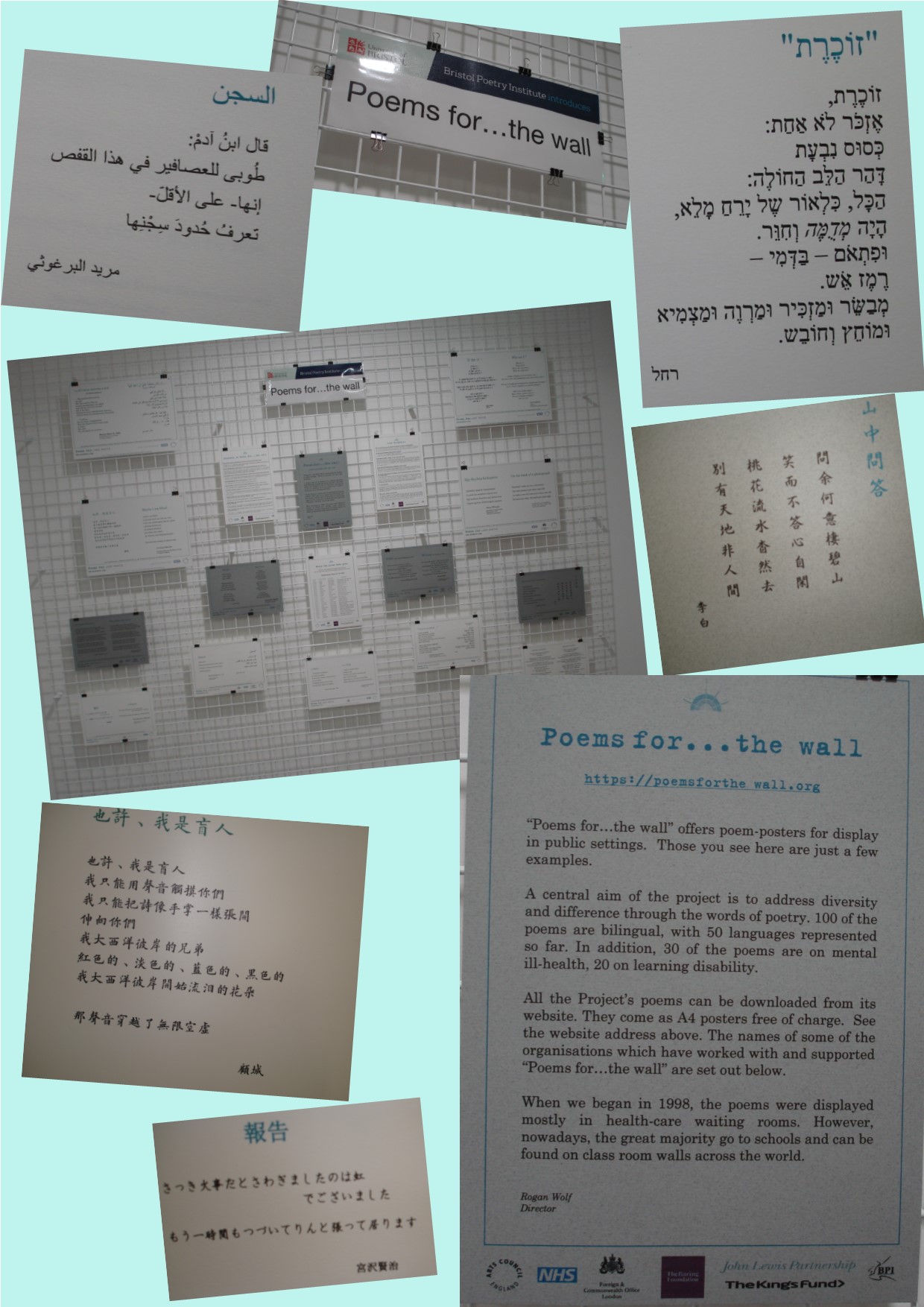
The collage of photographs above records a small exhibition of bilingual poem-posters that has recently been showing in a popular public setting managed by Bristol University. The poems were selected from “Poems for the Wall,” a project I founded almost exactly twenty years ago, and still run. The exhibition went up under the stewardship of the university’s Bristol Poetry Institute.
Half way up the collage, towards the left, you can see a background photograph of all the poems together displayed on the wall. Four of them are printed on paperboard at A3 size, the rest on card at A4 size.
Look carefully at the group picture and you’ll see that every small poster has two passages of text on it, printed alongside and opposite each other. In each case, one passage of text is the original poem composed in a non-English language ; the other is its English translation.
It’s as if there is a conversation going on in each poster. Or exploration.
For information, there are ten different languages represented in the group picture : Arabic, Dutch, Greek, Hebrew, Hungarian, Japanese, Latin, Mandarin, Punjabi, Tigrinyi.
Five times that number are represented in the project’s collection as a whole, comprising over 200 poems. You can find all them on the project’s website https://poemsforthewall.org and can download them free of charge.
I have been able to enlarge five of the languages for the collage above : Arabic, Hebrew, Japanese and two ages of Mandarin. One of the Mandarin pair – by Gu Cheng – was written approximately a thousand years after the other – by Li Bai. And the poem by Li Bai was almost certainly painted, not written.
And when Li Bai positioned his letters, he started at the top and from the right and his eye ran downwards and leftwards. By the time Gu Cheng was writing, a thousand years later, he saw his writing in the same way as the western – horizontally and from left to right.
And for those Westerners who don’t know, please note that the Arabic and the Hebrew you can see in the picture above here are both written and read from the right.
The poet David Hart once said of the “Poems for the wall” project : “we have the chance here to open people’s lives to each other.”
